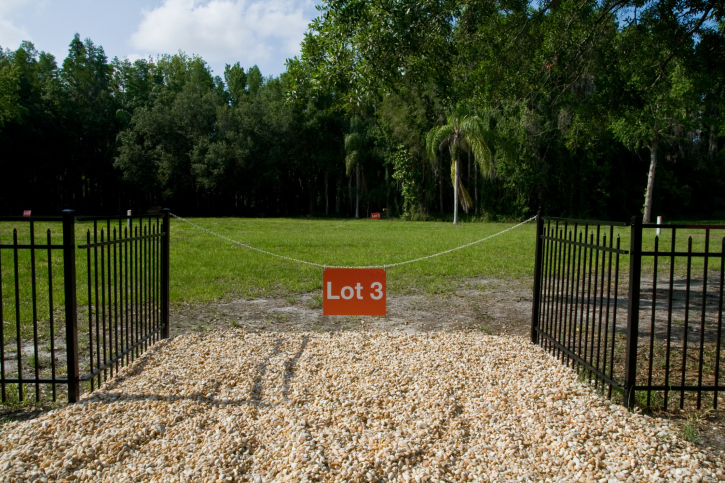 Selecting the right home to purchase for a family is a monumental task, and this process can seem even more challenging for those with a large or growing family. A common goal may be to give everyone ample space to stretch out and feel relaxed, but some home buyers may also be focused on other factors like location, cost and even the general style of the home. While choosing the perfect home for a large or growing family is not easy, the process can be simplified by focusing on a few points.
Selecting the right home to purchase for a family is a monumental task, and this process can seem even more challenging for those with a large or growing family. A common goal may be to give everyone ample space to stretch out and feel relaxed, but some home buyers may also be focused on other factors like location, cost and even the general style of the home. While choosing the perfect home for a large or growing family is not easy, the process can be simplified by focusing on a few points.
Focus On Storage Space
There are few things that can make home life more miserable in the coming years than a lack of storage space. When a large family does not have adequate storage space in closets, the attic, the garage and cabinets, their items will likely find a home on the counters, on the floor and in other undesirable locations. Home buyers can consider looking for a home that has more storage space than is needed right now to ensure that the new home can accommodate growing needs over the years.
Think About Function Over Size
Many people who are looking for a new home will focus on finding a home that has a specific minimum square footage or a minimum number of bedrooms, but function is generally more important. For example, if a home has bar-style seating at the kitchen counter, the family may not need as large of a breakfast room to accommodate its needs. The family may also get more use out of a home that has a second living area, such as a game room, rather than a formal dining room that may rarely be used.
Choose The Right Floor Plan
In addition, consider reviewing the floor plan of the home carefully. Many prefer to have the kids’ rooms away from the master room, a study placed away from the kids’ game room or an open area where the kitchen and family room are connected so that a parent can oversee the kids while making meals. Home buyers should consider how they live and their likes and dislikes about their current space to determine which floor plan is best for them.
Deciding which home to purchase is rarely easy to do, but your trusted real estate professional can assist home buyers with this process. Those who are searching for a new home for a large or growing family can call their local real estate agent for further assistance.
 Many people make the decision to move from the country or the suburbs into the heart of the downtown area for a number of reasons, such as to enjoy proximity to work or to enjoy the urban lifestyle. With the higher cost of real estate in central urban areas and with real estate space at a premium, many who make the decision to relocate will need to downsize from a larger house to a smaller condo or apartment. While this can be challenging, it can be accomplished by following a few steps.
Many people make the decision to move from the country or the suburbs into the heart of the downtown area for a number of reasons, such as to enjoy proximity to work or to enjoy the urban lifestyle. With the higher cost of real estate in central urban areas and with real estate space at a premium, many who make the decision to relocate will need to downsize from a larger house to a smaller condo or apartment. While this can be challenging, it can be accomplished by following a few steps. Finding the perfect home to purchase is easier said than done, and savvy home buyers understand the importance of researching the neighborhood as well as the home. All home buyers have unique things that they are looking for in an ideal neighborhood, and these factors will play a major role in how enjoyable a homeowner’s living experience is. Those who are shopping for a new home this summer may focus on a few points to find the perfect neighborhood to live in before deciding which home to purchase in that community.
Finding the perfect home to purchase is easier said than done, and savvy home buyers understand the importance of researching the neighborhood as well as the home. All home buyers have unique things that they are looking for in an ideal neighborhood, and these factors will play a major role in how enjoyable a homeowner’s living experience is. Those who are shopping for a new home this summer may focus on a few points to find the perfect neighborhood to live in before deciding which home to purchase in that community. There are numerous factors that you may review when choosing a new place to live. If you have children, the quality of the schools and the level of education that your kids will receive in the schools is important. However, you may not be certain how to determine if a school is good or not. When you are looking at schools, use this helpful checklist to guide you in making a great decision.
There are numerous factors that you may review when choosing a new place to live. If you have children, the quality of the schools and the level of education that your kids will receive in the schools is important. However, you may not be certain how to determine if a school is good or not. When you are looking at schools, use this helpful checklist to guide you in making a great decision. Real estate sales contracts can be confusing, and there seem to be contingencies and special circumstances for many different events built into a standard contract. One option that your real estate agent may ask if you are interested in is an escalation clause. This is typically an optional clause that you can choose to invoke if you desire, so you should take time to learn more about what it is before you make your offer.
Real estate sales contracts can be confusing, and there seem to be contingencies and special circumstances for many different events built into a standard contract. One option that your real estate agent may ask if you are interested in is an escalation clause. This is typically an optional clause that you can choose to invoke if you desire, so you should take time to learn more about what it is before you make your offer. When buying a new home, you may have a close eye focused on your budget and expenses, and your goal may be to keep related expenses to a minimum. However, you may also be well aware that a real estate purchase is a legal transaction, and you may be wondering if you need to pay for legal services from a real estate attorney. With a closer look, you can make a better decision that is right for your home buying plans.
When buying a new home, you may have a close eye focused on your budget and expenses, and your goal may be to keep related expenses to a minimum. However, you may also be well aware that a real estate purchase is a legal transaction, and you may be wondering if you need to pay for legal services from a real estate attorney. With a closer look, you can make a better decision that is right for your home buying plans. When many people think about investing in property, they think about purchasing income-producing real estate such as a residential property or an office building with tenants. There are indeed many benefits associated with investing in income-producing property. For example, these properties may produce rent that can offset your ownership expenses. However, buying raw land can also be an excellent long-term investment strategy.
When many people think about investing in property, they think about purchasing income-producing real estate such as a residential property or an office building with tenants. There are indeed many benefits associated with investing in income-producing property. For example, these properties may produce rent that can offset your ownership expenses. However, buying raw land can also be an excellent long-term investment strategy. While some home buyers only want to live in a brand new home and will custom build a home to their specifications, others are drawn to the historic character and charm of a classic home. Older homes may have incredible architectural detail and special features that you simply do not want to change. However, there are some essential features that should be upgraded as soon as possible after you take ownership of your classic home.
While some home buyers only want to live in a brand new home and will custom build a home to their specifications, others are drawn to the historic character and charm of a classic home. Older homes may have incredible architectural detail and special features that you simply do not want to change. However, there are some essential features that should be upgraded as soon as possible after you take ownership of your classic home. All real estate transactions come with at least some negotiations, and some transactions are heavily negotiated from start to finish. As a home buyer, you understandably want to negotiate the best overall deal possible while successfully reaching your goal of closing on the home you have fallen in love with. To be truly successful with this process, it is important that you understand how to negotiate with the seller and the seller’s real estate agent.
All real estate transactions come with at least some negotiations, and some transactions are heavily negotiated from start to finish. As a home buyer, you understandably want to negotiate the best overall deal possible while successfully reaching your goal of closing on the home you have fallen in love with. To be truly successful with this process, it is important that you understand how to negotiate with the seller and the seller’s real estate agent. It was very common decades ago for several generations of a family to live together, and this may have included kids, parents, grandparents and even great-grandparents in some cases. Today’s modern homes are generally designed to accommodate a more traditional modern family, which includes only parents and kids or for only a married couple without kids. When you are buying a home for other generations as well, it is important for you to pay attention to a few important points.
It was very common decades ago for several generations of a family to live together, and this may have included kids, parents, grandparents and even great-grandparents in some cases. Today’s modern homes are generally designed to accommodate a more traditional modern family, which includes only parents and kids or for only a married couple without kids. When you are buying a home for other generations as well, it is important for you to pay attention to a few important points.